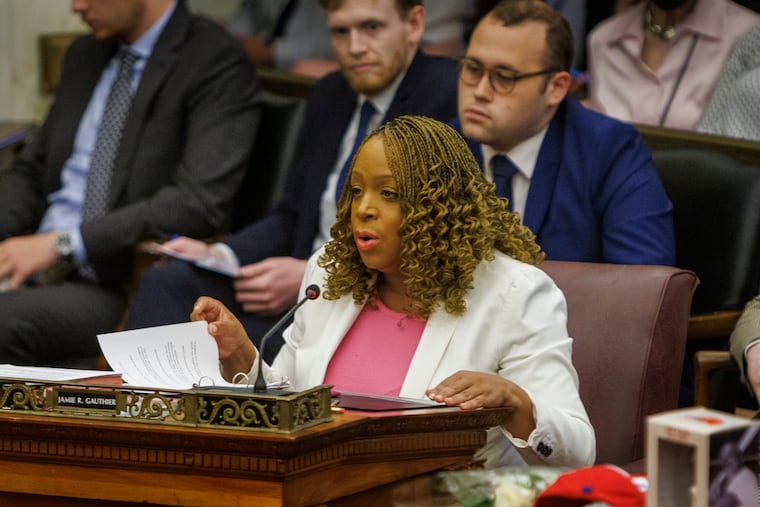With new property assessments out, here’s what to know about Philly’s new tax relief program
The city's new low-income tax relief program freezes the amount of property tax owed even as a home’s value increases.

A new program passed by City Council in June will allow eligible Philadelphia homeowners to freeze their property tax bills at a lower amount.
The low-income property tax freeze is expected to be designed similarly to the senior citizen tax freeze, but the city Department of Revenue is still working on how to implement the program. Applications aren’t yet available.
Councilmember Jamie Gauthier introduced the legislation to create the program, empowered by corresponding state legislation introduced by Democratic State Rep. Jared Solomon of Northeast Philly.
The legislation had been introduced in a previous session, Gauthier said, by then-Councilmember Cherelle L. Parker on behalf of Councilmember Darrell L. Clarke.
Gauthier represents the Philadelphia City Council’s 3rd District, where residents in majority Black neighborhoods, including Parkside and Kingsessing, will see some of the steepest property tax hikes in the city.
After a months-long delay, the city released new property assessments on Wednesday. New valuations are available online by searching a tool on the city’s website (property.phila.gov) and the city said it started sending notices about new assessments and new tax bills Wednesday.
“We were really spurred into action due to the last round of property assessments,” Gauthier said. Her office was flooded with calls from constituents who were scared, frustrated and angry with their sharp tax increases.
“[Philadelphia has] always prided ourselves on the fact that homeownership is high, even among moderate and low-income people,” Gauthier said. “We want to make sure that remains who we are.”
The revenue department is still crafting the regulations around executing the low-income property tax freeze, but here’s what we already know about the program.
How does the tax freeze work?
Under the program, the amount of property tax owed is set at the 2024 amount and does not increase, even if a home’s value increased with the 2025 assessment.
If a valuation decreases, the bill will decrease.
Eligible Philadelphia homeowners have to apply for the program and be approved before benefiting from the tax freeze.
The freeze will not be retroactive, but will hold property taxes at the 2024 amount for enrolled homeowners, Gauthier said.
Who qualifies for the tax freeze?
Single Philadelphia homeowners who make no more than $33,500 annually, and married couples who make no more than $41,500 annually are eligible for the program.
The cutoff is based on the highest income allowed by Pennsylvania’s PACENET pharmaceutical assistance program.
There is no minimum income requirement.
How do I apply?
The revenue department aims to make applications available by September, according to department spokesperson Christian Crespo. The deadline to apply will be Jan. 31, 2025, Crespo said. Homeowners who are accepted into the program will see the relief on their 2025 tax bill, due March 31.
Gauthier spokesperson Harrison Feinman said residents will be expected to provide proof of income.
Examples of proof of income according to the senior citizen tax freeze application include, but aren’t limited to:
Social Security award letters
Pension statements
Bank statements
Pay stubs from a current employer
Tax returns
Child support and alimony
When an application exists, it will be available for download to be printed and mailed to the Department of Revenue, or completed online at the Philadelphia Tax Center website (tax-services.phila.gov).
Can the new program be combined with any other existing relief or exemptions?
The low-income property tax freeze, like the senior citizen freeze, can be combined with the city’s homestead exemption, which knocks $100,000 off a property’s valuation for enrolled Philadelphia homeowners.
“In fact, if we receive an application from a homeowner who qualifies for the programs but doesn’t have the Homestead Exemption, we will automatically add the Homestead Exemption to their account,” Crespo, the department spokesperson, said. He added the tax freeze has greater benefit than the longtime owner occupants program.
The freeze can also be combined with the owner occupied payment agreement, which offers monthly payment plans to Philadelphia homeowners with past due real estate tax bills.